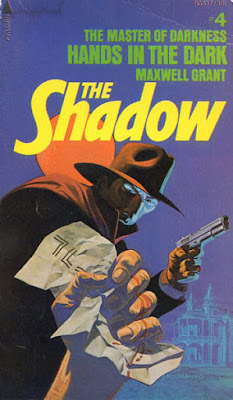Maverick (1994), starring Mel Gibson, Jodie Foster and James Garner. Written by William Goldman (based on the TV series created by Roy Huggins). Directed by Richard Donner.
TIM SAYS:
I'd admit I was somewhat reluctant to watch this movie, which was based on the classic TV series that ran from 1957 to 1962. James Garner's portrayal of Bret Maverick in the series is indeed a classic. Garner, in fact, created a one-of-a-kind character that could never truly be recreated by anyone else. Imagine someone other than Peter Falk as Columbo, for instance. Sometimes, an actor fits a role perfectly and that perfection can never be recaptured by someone else.
But I was able to enjoy the 1994 movie. Mel Gibson was good in the role of Bret and if you take the movie on its own--disconnected from the series and set in its own parallel universe--than it gives us a fun, enjoyable story.
The plot involves Maverick trying to get to a massive poker contest and also raise the last few thousand dollars he needs for the contest entry fee. Along the way, he falls in with a very pretty thief named Annabelle Bransford (Jodie Foster) and an aging lawman played by Garner. They have a series of mini-adventures, with Annabelle trying to snitch Maverick's money on several occasions. The various situations they encounter shows Maverick's skills as a gambler and a con artist, as well as showing us that he can use a gun if he absolutely has to AND that, if push comes to shove, he actually has some moral sensibilities. The entire movie builds up to a series of funny plot twists to bring everything to a satisfying conclusion.
I enjoyed the cameos featuring actors who made their names in Westerns (Robert Fuller, Doug McClure, Denver Pyle, etc), but I did think a Danny Glover cameo with a shout-out to Lethal Weapon was a bit too heavy-handed.
The ambiance of the movie is more action-oriented than the TV series usually was and Gibson's version of Maverick will never be the equal of Garner's original version. But I enjoyed Maverick regardless.
I am going to make Angela watch an episode of the TV series, though.
ANGELA SAYS:
I saw this adaptation of Maverick fairly soon after it came out and really enjoyed it. It is an easy going, hilarious movie, that doesn’t take itself too seriously. I don’t recall seeing any reruns of the original series, but I know the premise was Garner playing a gambler/conman; except his cons were always to make sure the bad guys didn’t win each week. The character came across as a little bumbling and inept, yet always won the day before the credits rolled.
The movie starts with Maverick desperately trying to get the final $3,000 needed to enter a high stakes poker game. Most of the movie romps through western tropes; caravan attacks, savage Indians, runaway stagecoaches, show downs in the street, double crossing outlaws and gamblers, lots of gamblers. Along the way, he is conned and manipulated by pioneer missionaries, “savage” Indians and Annabelle Bransford. Ultimately, Maverick wins the money and the girl; or does he?
Bad language in movies is a hot button of mine, especially when it isn’t necessary, and this movie has some. Fortunately, it wasn’t enough to spoil my enjoyment, just enough to make me wish they’d left it out. Overall, I thought it lived up to expectations. And it was fun to see all the cameos by old time western actors and country music stars. Some of the shout outs pushed the envelope a bit, but they succeeded in generating a chuckle so they did their job.
I was a little apprehensive when I suggested this. I know Tim considers Maverick one of the classic tv westerns and he can tend to nitpick; particularly over anything that might spoil a beloved childhood favorite. I knew he would like the movie, but I wasn’t sure how he would take Gibson in the role of Maverick. I’m glad he was able to enjoy it as much as I did. In return, I agreed to watch an episode from the original series – that should be fun as well.















